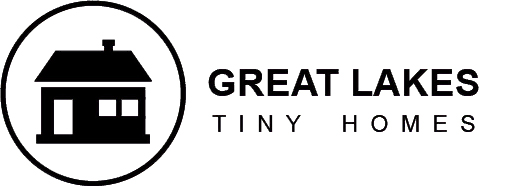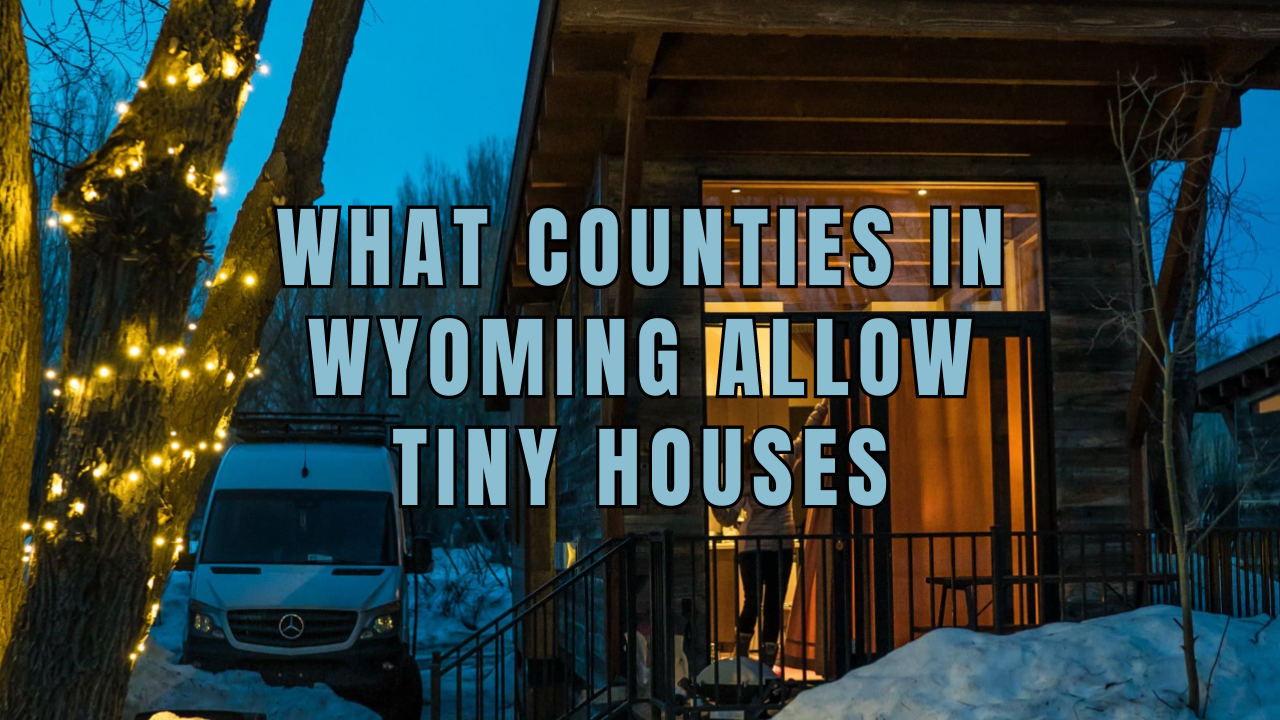Tiny houses have been gaining popularity as a more affordable and sustainable housing option, but navigating the rules and regulations for building them can be challenging. In Wyoming, the requirements for tiny houses vary by county, so know where to buy a tiny home legally.
Some counties have embraced tiny house living, while others have restrictions that make it hard to set up a tiny house. If you’re considering relocating to Wyoming and living in a tiny house, understand the specific regulations and zoning laws for tiny houses in the county you have in mind.
Let’s dive into the rules and regulations you need to consider for a tiny house in Wyoming.
Wyoming Tiny House Costs
Before you begin your small house search, figure out how much you can spend and what reasonably priced tiny home options are available.
The cost for tiny houses varies by county or city, with an average of $223 to $500 per square foot.
We provide a solution that considers all requirements and financial restraints, allowing you to begin constructing your tiny home. Discover Wyoming tiny houses for sale!
What Counties in Wyoming Allow Tiny Houses?
Wyoming has lax laws on small homes throughout the state, making it a tiny house-friendly state. Each county and city is responsible for developing its laws, and most counties and communities in Wyoming embrace the concept of small dwellings.
Park County
Specifically, the City of Cody refers to tiny houses on wheels as recreational units (RVs). Furthermore, it strongly restricts their usage as permanent housing. One exception applies if your tiny home on wheels is an auxiliary dwelling unit (ADU).
Natrona County
In Natrona County, tiny homes on foundations must have a floor space of at least 220 square feet of floor area. Lesser square footage becomes uninhabitable and unlawful.
Tiny foundation dwellings in Casper are known as “efficiency dwelling units.” According to this definition, small homes on foundations must have a living room of at least 220 square feet if the bedroom and living area are combined. The bedroom needs to be at least 120 square feet if the living room and bedroom are distinct spaces.
Tiny House Regulations And Rules In Wyoming
Tiny houses are subject to regulations and rules set by local zoning ordinances and building codes. These regulations may include minimum size requirements for dwellings and restrictions on where tiny houses can be located. Additionally, there may be rules regarding utilities, waste management, and safety standards that must be adhered to when building or living in a tiny house in Wyoming. It is vital for individuals interested in tiny house living to familiarize themselves with these regulations.
Permanent Structure Rules
Tiny houses are permanent structures if they are affixed to a foundation. It means they must adhere to all local building codes and regulations for permanent housing. Additionally, there may be specific zoning and land use regulations that dictate where tiny houses can be on a property.
They are sometimes “efficiency dwelling units” and must conform with the International Residential Code (IRC), particularly Appendix Q, which sets the criteria for small homes on foundations. These specifications cover size, egress, and safety issues.
However, Wyoming does not have a statewide rule governing tiny houses. Therefore, it is critical to understand the precise restrictions in the intended area since they vary by town or city.
Temporary Structure Rules
Tiny homes on wheels are designated as trailers in Wyoming and are subject to distinct regulations.
- They may only be in certain zoning districts, such as R-6 (Manufactured Home (Mobile) Park), and must be certified following HUD standards by a HUD-certified inspector.
- These residences are sometimes referred to as recreational vehicles (RVs) and do not require a construction permit because they are produced and then brought to their destination.
- The Wyoming Log Cabin Rule does not protect them.
Transitional Structure Rules
Transitional buildings are a cross between permanent and temporary tiny dwellings and require their matters. While Wyoming promotes the concept of tiny living, there are no tiny dwellings suitable for transitional living. Instead, several organizations provide transitional housing, which is not always tiny dwellings.
Nonetheless, practically all Wyoming counties, cities, and towns encourage small dwellings, regardless of whether they are specifically zoned.
Additional Considerations
- Living off-grid is permissible in Wyoming, where only land use plans and not zoning laws are mandatory. Disconnection from the electrical grid is not restricted, and Wyoming encourages greywater recycling and reuse.
In Wyoming, Where Can I Build A Tiny House?
It’s critical to identify a pleasant setting for the tiny dwelling. Employ a licensed tiny home builder to guide you through the process, manage any paperwork, and ensure the home meets building codes.
Building a tiny house does not have to be difficult, however it does need a significant amount of labor. Usually, small homes are in the following areas:
- RV parks
- National Parks and campgrounds
- Tiny house communities
- Private properties
Wyoming, Tiny House Communities
With the stunning natural beauty of Wyoming as a backdrop, tiny house dwellers can enjoy a more minimalist and sustainable lifestyle while still being surrounded by breathtaking scenery and a strong sense of community.
Wyoming is quite friendly to tiny homes, although there aren’t as many of them as you expect. Nonetheless, there is a growing group of people who promote tiny houses.
To promote tiny living, the community, which started with only one house, now invites visitors from the surrounding area.
Tiny House Builders Near Me
With Great Lakes Tiny Homes having a wide choice of tiny houses delivered anywhere in the country, you won’t have to waste time looking for Virginia tiny home builders.
Great Lakes Tiny Homes, an RV Industry Association (RVIA)-approved small home manufacturer, specializes in complying with the strictest safety, legal, and construction guidelines while keeping the highest production standards.
Do I Need a Certified Builder?
Yes, you do!
Buying a tiny house from an RVIA-approved builder, such as Great Lakes Tiny Homes, assures the construction follows all applicable laws and regulations.
In addition, it provides peace of mind since it assures that the materials in your home are safe, long-lasting, and high quality.
Other benefits of dealing with a registered builder include easy access to finance and insurance coverage. Compliance with RVIA standards guarantees that your small home is safe and livable.
FAQs
Can You Make a Tiny House in Wyoming Your Main Residence?
Without a doubt! Wyoming allows for permanent tiny house dwellings.
Remember that local rules and ordinances may change depending on where you reside. Ensure the tiny home conforms with all applicable laws and ordinances, including inspection requirements. You may also contact zoning and municipal officials.
Working with Wyoming’s licensed builders enables you to live a more comfortable and ecologically conscious lifestyle.
In Wyoming, Is It Legal to Build a Tiny Home in My Backyard?
Wyoming allows you to build a small cottage in your backyard. In addition to adhering to the laws and ordinances of your county or city, you should get further information about building small houses by contacting the local building authority.
The building rules will specify how high the tiny home is, how many emergency exits there are, how many windows there are, room sizes, minimum space, and other requirements.
Tiny houses on foundations, for example, are classified as Accessory Dwelling Units (ADUs) and must have at least 220 square feet of living space and one bedroom. The limitations differ for each county and city.
Does My Wyoming Tiny Home Require Me to Pay Property Taxes?
If you own real property in Wyoming, you must pay property taxes. Taxes apply to the property and any structures that support it, such as a fence or shed.
Property taxes for tiny dwellings are calculated based on their district. The tax rate in Wyoming is calculated based on the assessed value of the property.
Tiny houses on foundations typically qualify as residential property. In Wyoming, the level of assessment for residential property is 9.5%, which implies that instead of being taxed on the entire value of the property, you will be on 9.5% of the value.
However, mobile homes pay taxes differently. For example, Uinta County levies a 70% tax on the transportable home’s sales price. Don’t forget that the pricing may vary based on county and city.
Conclusion
Those interested in living in tiny homes in Wyoming should grasp that restrictions differ greatly depending on where they live. There is no one-size-fits-all solution, and potential tiny homeowners must conduct due research to verify compliance with local ordinances and regulations. Whether you are planning a permanent, temporary, or transitional small home building, it is best to speak with local municipal or county officials to understand the area’s needs.





